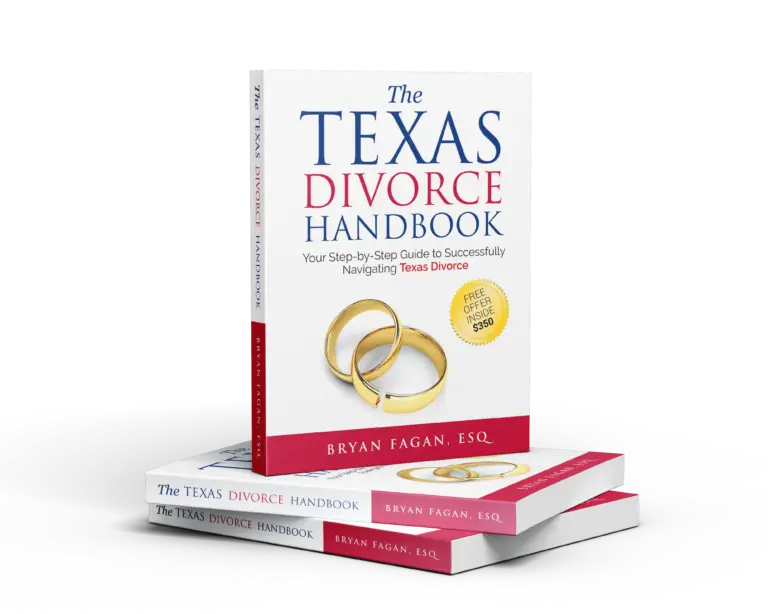Frequently Asked Questions
Can a Bryan family lawyer help with divorce proceedings?
A Bryan family lawyer can effectively assist with divorce proceedings by providing expert legal guidance, navigating complex paperwork, and advocating for your best interests throughout the process.
How to find a reliable family law attorney in Bryan?
Finding a reliable family law attorney in Bryan involves researching local attorneys, reading client reviews, and checking their qualifications and experience in family law. Scheduling a consultation can also help assess their suitability for your needs.
Can Bryan family lawyers handle child custody cases?
Bryan family lawyers can effectively handle child custody cases. With their expertise in family law, they are well-equipped to guide clients through the complexities of custody arrangements in Texas.
How to choose the best Bryan family law attorney?
Choosing the best Bryan family law attorney involves considering their experience in family law, client reviews, and communication style. Look for an attorney who understands your unique needs and offers a personalized approach to your case.
What services does a Bryan family attorney provide to clients?
A Bryan family attorney provides a range of services to clients, including legal representation in divorce proceedings, child custody disputes, property division, and mediation. They offer expert guidance to navigate family law issues effectively.
Can a Bryan family attorney help with divorce cases?
A Bryan family attorney can indeed assist with divorce cases. They provide expert legal guidance to navigate the complexities of divorce proceedings, ensuring that your rights and interests are effectively represented throughout the process.
Can a Bryan family lawyer help with child custody?
A Bryan family lawyer can indeed assist with child custody matters. They provide expert guidance throughout the legal process, helping you understand your rights and options to achieve the best outcome for your child.
What qualifications should a family lawyer have?
The qualifications a family lawyer should have include a law degree from an accredited institution, a valid license to practice law in their state, and specialized experience in family law matters such as divorce, child custody, and support issues.
How much experience do Bryan family lawyers need?
The experience required for Bryan family lawyers is essential for effectively navigating complex family law cases. Typically, a minimum of three to five years of focused experience in family law is recommended to ensure proficiency and successful representation.
What is the process for hiring a family attorney?
The process for hiring a family attorney involves researching potential candidates, scheduling consultations to discuss your case, evaluating their experience and approach, and finally, selecting the attorney who best aligns with your needs and goals.
What should I ask during a consultation?
During a consultation, you should ask about the attorney's experience in family law, their approach to your specific case, the potential outcomes, and the fee structure. This will help you assess their suitability for your needs.
How can I prepare for my first meeting?
Preparing for your first meeting involves gathering relevant documents, outlining your concerns, and formulating questions to discuss. This will help ensure a productive conversation about your family law matters.
What are the typical fees for family law services?
The typical fees for family law services can vary widely based on the complexity of the case and the attorney's experience, often ranging from hourly rates of $150 to $500 or flat fees for specific services.
How long does a divorce process usually take?
The duration of a divorce process typically varies based on factors like complexity and court schedules, but it generally takes anywhere from a few months to over a year in Texas.
What factors influence child custody decisions?
The factors that influence child custody decisions include the child's best interests, the parents' living situations, their ability to provide emotional and financial support, and the child's relationship with each parent.
What documents are needed for a divorce case?
The documents needed for a divorce case include the marriage certificate, any prenuptial agreements, financial statements, and information regarding assets and debts. These documents help establish the terms of the divorce and facilitate the legal process.
How can mediation benefit my family law case?
The benefits of mediation in your family law case include fostering open communication, reducing conflict, and promoting collaborative solutions. This process can lead to more satisfactory outcomes for both parties while saving time and legal expenses.
What are the common outcomes of divorce proceedings?
The common outcomes of divorce proceedings include the division of marital assets, determination of child custody and support, and the establishment of spousal support obligations. Each outcome is tailored to the specific circumstances of the couple involved.
How do I know if I need a lawyer?
Determining if you need a lawyer involves assessing the complexity of your legal issue. If you're facing a divorce, custody dispute, or other family law matters in Texas, consulting an attorney can provide clarity and guidance through the legal process.
What are the signs of a good family attorney?
The signs of a good family attorney include strong communication skills, a deep understanding of family law, a compassionate approach to clients, and a proven track record of successful case outcomes.
How can I change my child custody agreement?
Changing your child custody agreement involves filing a modification request with the court. You must demonstrate a significant change in circumstances that justifies the adjustment to the existing arrangement.
What is the role of a family lawyer in mediation?
The role of a family lawyer in mediation is to guide clients through the negotiation process, ensuring their rights are protected while facilitating communication between parties to reach a mutually beneficial agreement.
What are the benefits of local representation?
The benefits of local representation include personalized legal guidance tailored to your specific community and familiarity with local laws and court procedures, which can significantly enhance the effectiveness of your legal strategy and overall case outcome.
How do family lawyers handle domestic violence cases?
Family lawyers handle domestic violence cases by providing legal representation, ensuring the safety of victims through protective orders, and guiding clients through the legal process to secure custody and support arrangements.
What should I expect during a custody evaluation?
During a custody evaluation, you can expect a thorough assessment of your family dynamics, including interviews, home visits, and observations to determine the best interests of the child.
How can I enforce a child support order?
Enforcing a child support order involves taking legal action to ensure compliance. You can file a motion with the court, request wage garnishment, or seek assistance from the Texas Child Support Enforcement Agency to collect overdue payments.
What are the steps to file for divorce?
The steps to file for divorce include determining your grounds for divorce, completing the necessary paperwork, filing the petition with the court, serving your spouse, and attending any required court hearings.
How do I find reviews for family lawyers?
Finding reviews for family lawyers involves checking online platforms such as Google, Yelp, and Avvo, where clients share their experiences. Additionally, visiting the lawyer's website or social media pages can provide insights into their reputation and client satisfaction.
What is the difference between divorce and annulment?
The difference between divorce and annulment lies in their legal implications: divorce ends a valid marriage, while annulment declares that the marriage was never legally valid.
How can a lawyer assist with adoption processes?
A lawyer can assist with adoption processes by guiding clients through legal requirements, preparing necessary documentation, and representing them in court to ensure a smooth and compliant adoption experience.





